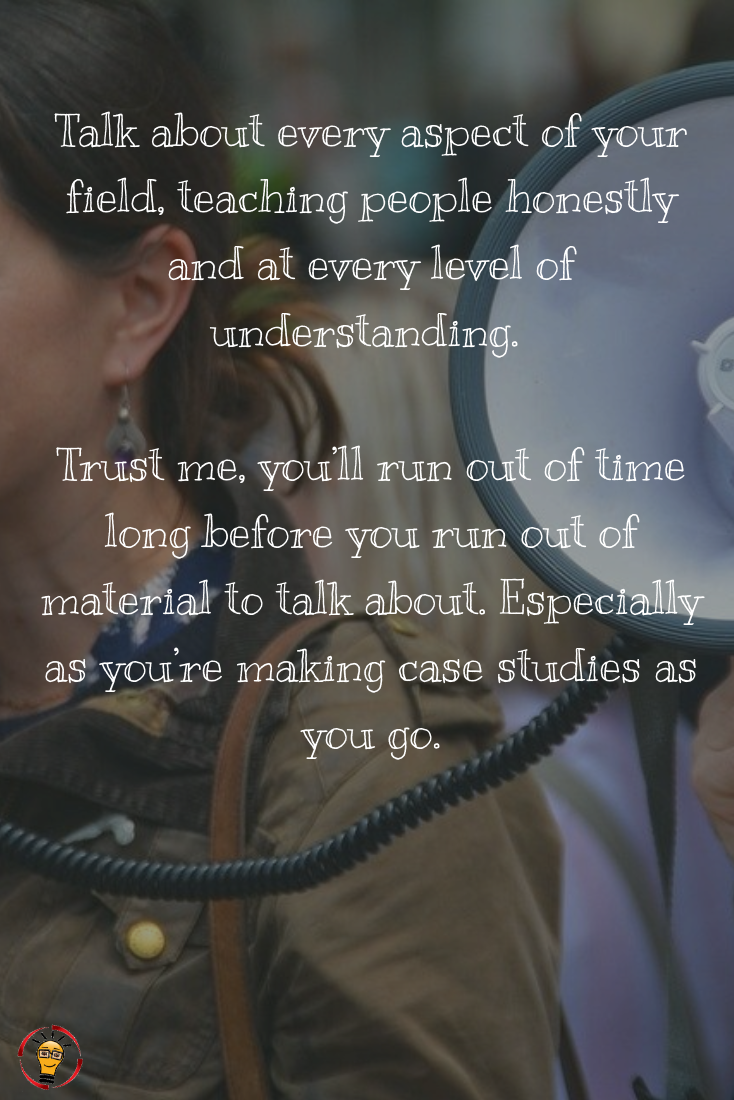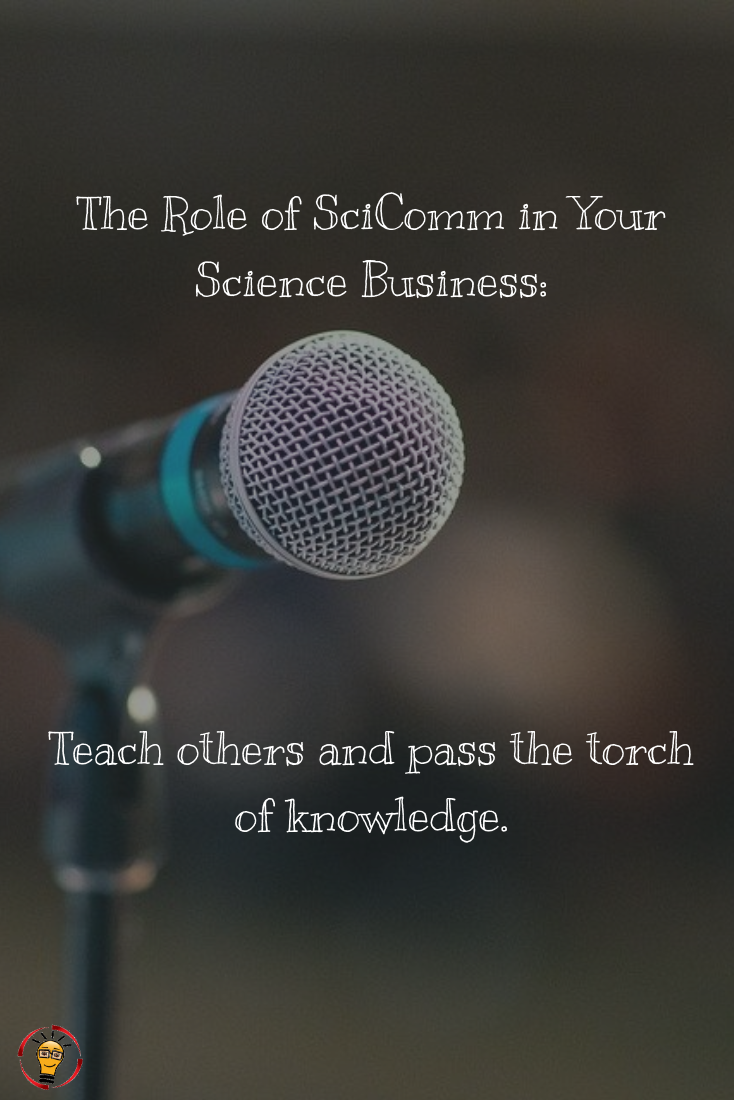In every business marketing is a priority. Every. Business. That includes your science gig. It doesn’t matter if you’re selling an environmental clean up service, engineering a product, building a specialised software programme, or any other applied science. Marketing is about communication, and you need it to not only explain to people what you do, but also teach them what you do.
The goal of your communication should not only be to sell, but to teach people what you do and how you do it so well that they could do it themselves — but trust you and want to pay you to do it for them.
And in the days of mistrusting everything, this trust is vital to your business and your foundation in science.
The best types of scicomm for you?
Those are the ones that reach your clients and teach them. They could be blog posts, videos, infographics, or even podcasts for the beginners. You could then consider white pages and case studies for those that want the whole, messy picture of your industry.
Where are your clients and potential clients in their journey? What is their problem, and how will your solution help? How do they like to consume things? That is the best method to communicate with them.
Scientists and SciComm professionals will complain.
Some scientists will say you’re wasting your time. Ignore that. That narrow minded focus on the science is for those that aren’t doing applied science. You have to use the science, teach the science, and also seek out the new discoveries, integrating them into your work as you go.
From the science communicators you’ll be reminded that not all scicomm is helpful. The role of a good scicomm professional is to teach and instruct so that a lay person understands the science. You will hear that your efforts are misleading and not good enough in their eyes. You will be told that your work is manipulative for “the good of the bottom line.” Ignore that, too. As long as you operate from a desire to serve others and solve problems, those that wish to use the science to solve those problems will be glad to have you share your knowledge.
Build upon a foundation of knowledge and integrity.
You’re a business person. You know that integrity will not only make happy clients, but also earn you a lot of referrals. Building on a foundation of integrity will make your business thrive with stability and growth. By default that would mean you can’t twist the research to confuse people into giving you the contracts and money. But it’s not easy to prove to people that is your modus operandi.
People are jaded — and for good reason. They have been lied to with half truths, white lies, and outright flashy lies. And they fall for it out of desperation and emotions.
To be honest, not all scicomm professionals are transparent and ethical. They throw together a shiny video highlighting a product. They make it fun and enchanting. They capture the imagination of the viewer. But, we’ve heard too many stories where people buy the shiny product… only to be disappointed best, hurt at worst.
Despite the desire to make something that goes viral, don’t risk a foundation of integrity. It will be what keeps you and your business in high regard. Playing the long game with scicomm in your business will help. Methods that you can use to communicate are:
-
-
- Blogs
- Vlogs
- Videos
- Podcasts
- Infographics
- White papers
- Workshops
- Seminars
- Flash mobs
- Case studies
- Anything else you can imagine
-
To do that, take advantage of the variety of mediums, the broad spectrum of topics your science could work with — seriously, we all know there is more than one thing that any science works tangentially to otherwise PhD theses would have run out long ago — and the ways you can solve problems. Talk about every aspect of your field, teaching people honestly and at every level of understanding. Trust me, you’ll run out of time long before you run out of material to talk about. Especially as you’re making case studies as you go.
Science communication has a huge role in any business that uses any science. It’s triply important for a science business. Go on. Build that foundation of trust, transparency, and knowledge.
 |
 |
 |
